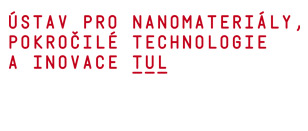
Swiss and EU negotiators are aiming to reach agreement on Horizon Europe association in the summer, which should allow full access to the programme for calls in 2025, but will not join the Copernicus earth monitoring project due to high costs.
Switzerland has been a longstanding member of the EU’s research and innovation framework programmes, but has been stuck outside since Bern walked away from wider talks about its relationship with the EU in 2021.
However, negotiating progress has been relatively swift since talks reopened last November after these broader talks got back on track.
As well as Horizon Europe, Switzerland is also negotiating access to the Erasmus+ mobility programme and Euratom.
“The expectation is that we will have some conclusions at the beginning of July,” said Xavier Pilloud, head of office at Netzwerk Future, a grouping of Switzerland’s universities, research funders and members of parliament.
Under transition measures, Swiss academics will be able to apply for European Research Council advanced grants this year, which open on 29 May.
Further transitional measures will allow Swiss researchers to apply for all Horizon Europe 2025 calls when negotiators “initial” a deal – a point in negotiations where both sides agree they have struck an agreement, but before it has been fully signed off by various EU and Swiss institutions.
This also means that Swiss participation in 2025, at least, shouldn’t be subject to sign off by the new Commission and parliament due to come in this year. However, any deal would need to be signed off in full before Swiss academics can receive any money.
“The question is whether we can participate in 2025, that’s the great question,” said Pilloud.
A Commission spokesperson said the EU is, “Fully committed to advance the negotiation with Switzerland efficiently and quickly.”
“Our objective remains to finalise negotiations in 2024 in line with the Common Understanding,” they said, referring to a joint document agreed last November that provided the basis for formal talks.
However, the timings are relatively tight – 2025 calls open in July this year, and Swiss researchers will need at least some warning beforehand to prepare their bids. “You have a few weeks to apply,” said Pilloud. “We need clarity.”
Audrey Leuba, rector of the University of Geneva, said the university is telling its researchers to prepare projects for both national funding pots, and EU-assessed grants which receive domestic funding. Bern has offered Swiss researchers backup funding to make up for lack of access to the ERC, and so they can bring their own money to participate in Horizon consortia.
“However, the uncertainty is difficult to manage for all those engaged in collaborations in the European Research Area,” Leuba said. “The younger generations are particularly affected.”
Twin track
Alongside negotiation over Horizon Europe and other research and education programmes, diplomats are also hammering out all kinds of other facets of the relationship, from air traffic control arrangements to food safety.
This twin-track negotiation is good news for Swiss scientists, as it means association doesn’t necessarily rely on the rest of the relationship being fully agreed first.
But at the same time, it’s unclear whether the Commission would stall Horizon talks as a way of gaining leverage in other areas. It did so as a negotiating tool against the UK, which was blocked from associating because of a bigger spat over Northern Ireland in the post-Brexit relationship.
Asked how the Commission would play the negotiations, a spokesperson pointed to a press conference last week in which Maroš Šefčovič, the executive vice president overseeing talks, stressed that Brussels is negotiating a “package of measures to modernise our relations.”
“So it means that nothing is agreed until everything is agreed,” he said. Still, it is possible to have the entire deal agreed in 2024. “I am convinced you can be done by the end of this year,” he said.
“We mean business,” Šefčovič added, referring to the recent deals with the UK.
Autor: David Matthews
Zdroj: Science Business


































